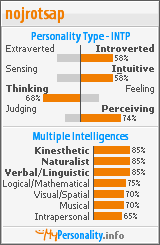Actually, this is not a post directly about the tower incident, as I am not there yet. But Genesis 11 is mostly a genealogy. And it's like I always say, genealogies are an ancient text's awkward segway. ACtually that is the first time I have ever used that phrase, but it won't be the last. Just as a genealogy separated Adam from Noah, this genealogy distinguishes Noah through the Tower of Babel. A few key points based on the characters who stand out with descriptions other than "begatten":
1) Nimrod (vv8-12): Described as a hunter and civilization builder. He also built the city of Babylon, which would likely have been the site for the tower. Though he is portrayed as an impressive man, his legacy leaves much to be desired. One almost gains the sense that cities are frowned upon when you consider future episodes (tower is destroyed, shepherds are promoted, kings generally fail). In fact, that is the basis of one of Ellul's books (which I haven't read, but I did sleep at a La Quinta inn last week). All that to say, Nimrod is known for conquest and power. He creates the cities that become primary enemies to Jerusalem. He uses his God-given dominion to dominate humans (consequence of the Fall. Notice the perpendiculars? [opposite of parallels] between the garden: creation vs building, relationships vs society, human equality vs human ruler).
2) Peleg (v 25)): Named because of what happened in his lifetime, the division of the earth. Probably referring to the Babel incident, especially considering that this is the last generation named in the genealogy. It could also refer to other cultural divides, or even geological events (i.e. earthquake). Considering its position in the text, I think it's probably a transition from genealogy to event.
3) Jobab (v 29): Who said Joe Bob wasn't a biblical name? Of course, Jobab was originally from Chicago, hence the mispronunciation.
The paradox of insular language
7 months ago



